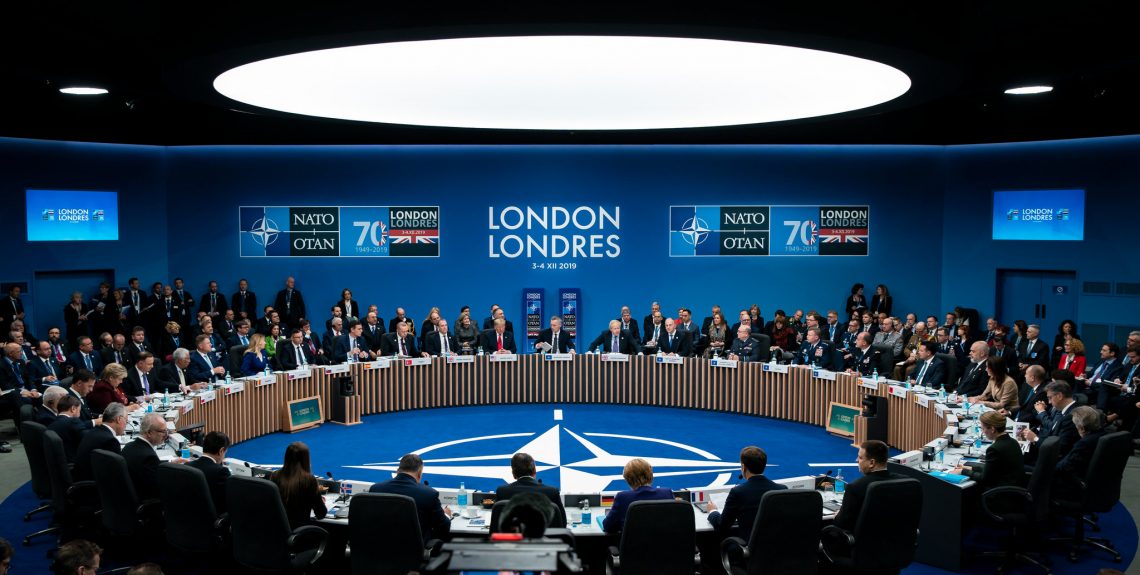Our public opinions have limited knowledge of NATO, at best. Our youth is hardly aware of its existence. Yet, for 70 years NATO has been a crucial provider of security in our daily life. Together with Europe and the United Nations, it has been a pillar of post-WWII security architecture, complemented by WTO (GATT at the time) and WB/IMF on the economic side.
Contrary to some expectations, it did not lose relevance after the fall of the Berlin Wall and the collapse of the Soviet Union: it just extended its mission beyond art. 5, projecting abroad the democratic values on which the Atlantic Pact is based. The first test during the Balkan crisis in the ’90 was, all in all, a success. Thanks to the American leadership and cooperation of the newly-born Russian Federation.
However, moving into the XXI century, the global scenario showed dramatic changes, so that the second test, Afghanistan, and the third, Iraq, revealed some NATO shortcomings, to such an extent that NATO didn’t take up any operational role in the subsequent Coalition against ISIS. Certainly not military shortcomings, but rather political ones. In a nutshell, NATO remains an extraordinary, unique military machine, but the comprehensive vision of its strategic direction became unclear. Who is the enemy? Where is it hiding? How to move on without risking of using assets while missing the targets? And what are the targets? Are all those not having the same kind of democratic institutions we have to be considered targets? What is terrorism, who are the terrorists? Despite political propaganda, there are no easy answers.
In an effort to achieve a more accurate knowledge of the overall new environment, experts have been engaging in the search for ‘game changers’: was it the Arab awakening? or the Syrian chaos? or Putin’ Russia assertiveness? or the energy revolution associated with shale oil and gas? or new technologies and their application to defence? or the policy shift of new US Administration? or Germany’s potential as a strategic global protagonist? or emerging countries that already emerged? And so on. Of course all these factors and their combination are relevant to understand the present juncture. But they are not sufficient to explain the uncertainty prevailing in our times and therefore how NATO should define itself or update its approach.
A better understanding is possibly achievable by adopting a wider vision, enlarging the horizon. We could than realize that the real ‘game changers’ today are the people. Including our people. And that other valuable international post-WWII organisations are suffering from the same phenomenon; they are losing perspective, together with mutual trust among partners. Why? Simply because a cultural, political, economic dramatic change has taken place globally in a very short time, and a so-called “liquid environment” has been replacing the static one of the past decades.
Recently, Hans Binnendijk (Scowcroft Centre for Strategy and Security) and others recognised the need for a new strategic concept, a new consensus on the nature of the threats. Before them, Heike Maas, referring to the unfortunate Emanuel Macron “brain dead” diagnosis, stated that allies need to “develop NATO further, conceptually and politically”. According to his words, this would mean to stop NATO becoming too narrowly focused on defence and strengthen its political function.
For the layman this appears exactly the point. If NATO is built around values, strengthening the political function would help facing new challenges outside the Alliance as well as inside. How? First of all, by reaching-out people’s demand for participation and involving them in shaping their security future. Second, by recognising that people’s concerns are much wider than defence in traditional terms, and that for Europe this possibly implies assuming more responsibility and a louder voice within the Alliance. Third, by not excluding a review of the decision-making process so as to tackle scenarios which people on either side of the Atlantic feel closer to their priorities.
The Sustainable Development Agenda 2030 offers a full range of goals at the centre of people’s security concern. They are fully consistent with NATO’s fundamental principles: from universal respect of human rights, to fostering democracy, good governance, rule of law, to promoting gender equalities, environmental protection, to caring about social justice and fighting inequalities within countries and among them. By embracing and implementing these goals in an enlarged vision for the future, and by better coordinating with relevant organisations, NATO would improve its effectiveness in pursuing its core mission, and possibly remedy to the declining consensus in our countries and abroad.
Is this asking too much?
Laura Mirachian
Ambassador, Italian Ministry of Foreign Affairs, Rome






















